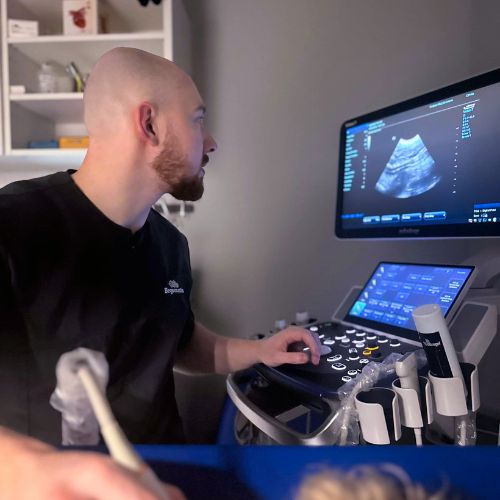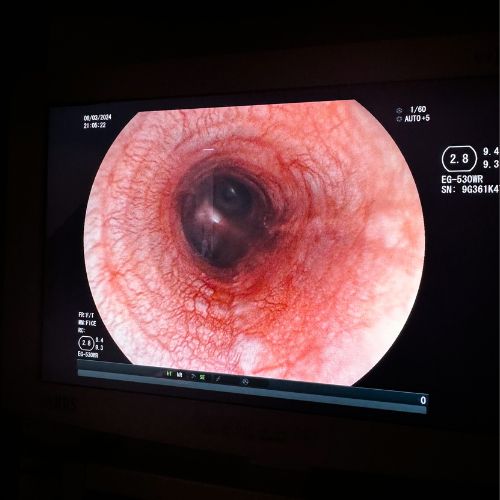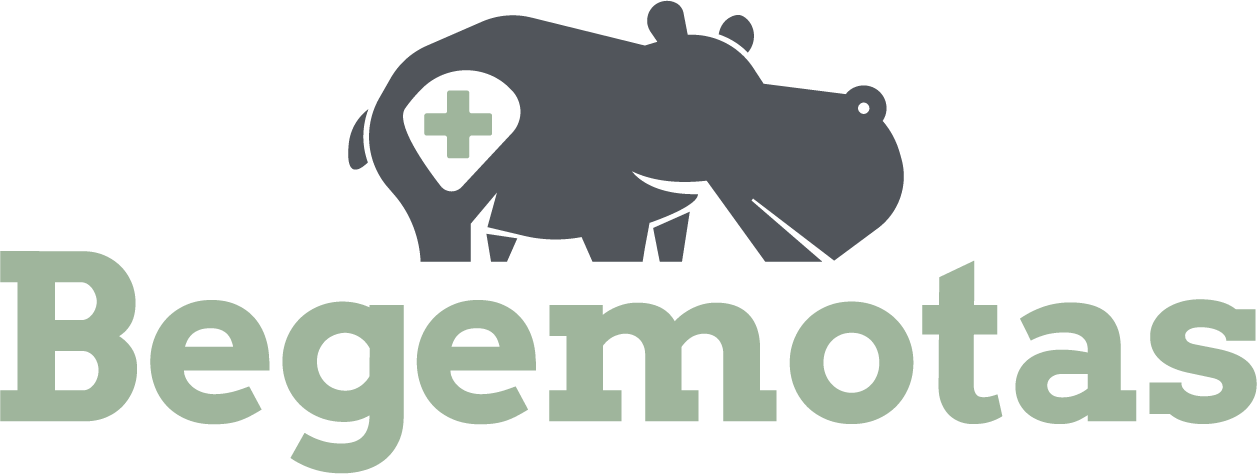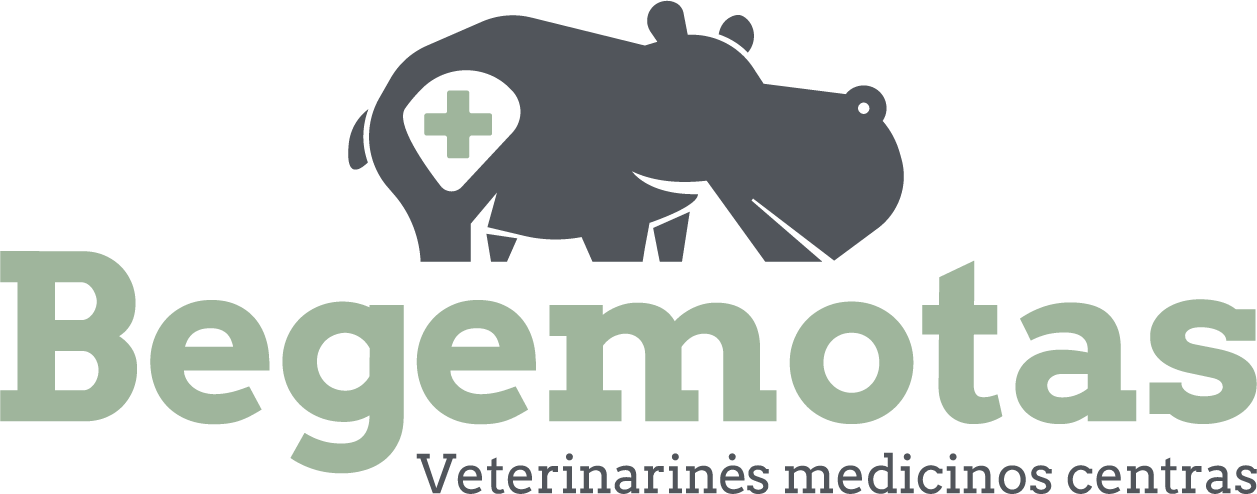Why us?

Competent staff
Experienced veterinarians and caring assistants.

Modern equipment
Accurate and rapid diagnosis.

Happy pet
Healthy because happy.
Animal castration and sterilization at the Begemotas clinic
Castration in males involves removing the testicles while leaving the scrotum intact. Males can be castrated using a laparoscope if the testicles have not descended into the scrotum. In this case, the testicle or testicles are removed from the abdominal cavity using a laparoscope.
Spaying (sterilization) of female dogs During spaying (sterilization) of female dogs, the ovaries (ovarioectomy) or the ovaries together with the uterus (ovariohysterectomy) are removed. Spaying of female dogs is usually performed using a laparoscope. An optical system and thin manipulators are used during the operation. The biggest advantage of laparoscopic sterilization of female dogs is the extremely small (up to 2.5 cm) surgical incision.
Sterilization of female dogs can also be performed without a laparoscope, when the ovaries and uterus are removed through an incision in the abdominal area. This type of surgery is usually a little more complicated during the healing process, and a larger incision is made, depending on the weight, breed, and number of litters of the bitch.
Specialists at the Begemotas veterinary clinic in Vilnius recommend neutering pets and other animals that are not intended for breeding or participation in shows. Neutering cats, dogs, and other animals protects pets from malignant tumors of the mammary glands, pyometra, prostatic hyperplasia, prostate tumors, unplanned pregnancy, false (pseudo) pregnancy, and many other undesirable diseases that can be caused by sex hormones.
At the Begemotas veterinary clinic in Vilnius, veterinary specialists recommend that cats be neutered between 6 months and 1 year of age, dogs between 1 and 3 years of age, depending on the breed, and female dogs 2 months after their first heat.
Begemoto veterinarijos klinikoje šunų ir kačių sterilizaciją bei kastraciją atlieka:

Vet. Doctor EDMUNDAS

Vet. Doctor EGLĖ
Sign up now!

Vet. Doctor ROBERT
Cost of neutering and spaying cats and dogs
In summary, the cost of neutering and spaying cats and dogs depends on many factors, including the type of animal, size, health condition, type of procedure, anesthesia requirements, clinic location and reputation, veterinarian experience, post-operative care, and additional procedures. To find out the exact cost of the operation, it is recommended to contact a veterinary clinic.
The price often depends on the type of animal (cat or dog) and size (small, medium, large dog). Large dogs usually require more surgical time, which can increase the cost of the operation. For cats and small dogs, the procedure may be simpler and therefore less expensive.
The amount of medication used before, during, and after surgical procedures may depend on the animal's species, weight, pain tolerance, and general well-being. In addition, medication dosages may vary depending on the type of medication, its strength, and the expected duration of treatment. During all procedures, medications are calculated individually by a specialist veterinarian.
Castration (sterilization of males) is usually simpler and cheaper than sterilization of females because it is less invasive. Sterilization (for females) is more complicated because it involves opening the abdominal cavity and removing the uterus and ovaries. Therefore, it is often more expensive due to the greater surgical complexity and longer recovery time. Laparoscopic castration for females – due to the additional equipment used and the higher qualifications required of the surgeon, this type of procedure is not only safer but also more expensive than traditional surgical methods.
The type and amount of anesthesia used during surgery can also affect the price. Some clinics use intravenous general anesthesia, while others use innovative inhalation general anesthesia. Larger or more complex surgeries may require longer anesthesia, in which case an innovative inhalation anesthesia method is chosen, which increases the overall cost of the surgery.
Postoperative care, such as monitoring, pain medication, antibiotics, protective collars, suture removal, or additional follow-up visits, may increase the overall cost of the surgery.
Before surgery, additional tests, such as blood tests, are recommended for all cats and dogs to assess their suitability for surgery, anesthesia, or to detect any health problems that may affect the surgery. Therefore, the Begemotas Veterinary Clinic recommends visiting a cardiologist for a thorough heart examination before any surgical procedures to ensure the safety of anesthesia and surgery and reduce potential risks. This increases the overall cost of neutering or spaying a dog or cat.
Reviews
 Nerky2025-02-17Jauki aplinka ir malonus personalas
Nerky2025-02-17Jauki aplinka ir malonus personalas Kristina Masoit2025-02-08Šioje klinikoje gydomės jau daugiau nei metus, o mūsų draugai, kurie turi gyvūnų, lankosi šioje klinikoje su savo augintiniais, visada lieka patenkinti savo augintiniais ir jų šeimininkais. Visiems klinikos "Begemotas" darbuotojams labai ačiū už sunkų darbą ir profesionalumą.
Kristina Masoit2025-02-08Šioje klinikoje gydomės jau daugiau nei metus, o mūsų draugai, kurie turi gyvūnų, lankosi šioje klinikoje su savo augintiniais, visada lieka patenkinti savo augintiniais ir jų šeimininkais. Visiems klinikos "Begemotas" darbuotojams labai ačiū už sunkų darbą ir profesionalumą. teja2025-01-27amazing place , such great and caring doctors , always very caring understanding and helpful. You can tell they love and care for each and every animal❤️
teja2025-01-27amazing place , such great and caring doctors , always very caring understanding and helpful. You can tell they love and care for each and every animal❤️ Vaida Matijošaitė2025-01-25Ačiū gydytojai Eglei už pirmąsias, labai profesionalias apžiūras ir patarimus. Labai didelis ačiū Gabrielei už suteiktą skubią pagalbą ir priežiūrą gydymo metu. Čija siunčia linkėjimus! 🤍
Vaida Matijošaitė2025-01-25Ačiū gydytojai Eglei už pirmąsias, labai profesionalias apžiūras ir patarimus. Labai didelis ačiū Gabrielei už suteiktą skubią pagalbą ir priežiūrą gydymo metu. Čija siunčia linkėjimus! 🤍 Giedrius Znutas2025-01-15Kaip aplankęs daugybę klinikų Lietuvoje esu patenkintas paslaugų kokybe. Pirmą kartą man buvo taip detaliai paaiškinti augintinio kraujo tyrimai.
Giedrius Znutas2025-01-15Kaip aplankęs daugybę klinikų Lietuvoje esu patenkintas paslaugų kokybe. Pirmą kartą man buvo taip detaliai paaiškinti augintinio kraujo tyrimai. The Nomad (One man and his dogs.)2025-01-14Taking dogs their tonight for treatment prior to return to UK
The Nomad (One man and his dogs.)2025-01-14Taking dogs their tonight for treatment prior to return to UK
Registration
Don’t delay and take care of your pet’s health – register for a consultation with a doctor at the Begemotas clinic today. The sooner we diagnose the problem, the sooner we can help your pet feel better!
or online:


